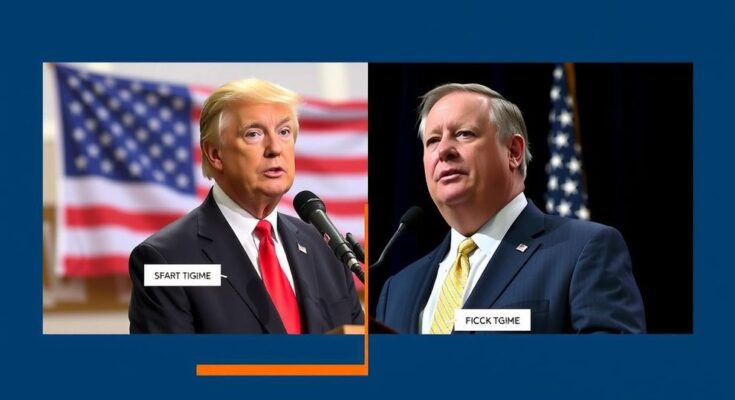Virginia’s special elections on Tuesday are poised to assess voter sentiment prior to the 2025 gubernatorial race. Key contests in the General Assembly will determine the balance of power, particularly regarding abortion rights and budget priorities, amid national interest and a significant state surplus.
The upcoming special elections in Virginia, scheduled for Tuesday, represent a critical evaluation of voter sentiment leading up to the 2025 gubernatorial election. These elections may strengthen the Democratic majority in the Virginia General Assembly or reflect a growing Republican inclination statewide. The pivotal contest in the 32nd Senate District features Democratic Delegate Kannan Srinivasan facing off against Republican Tumay Harding, following U.S. Representative Suhas Subramanyam’s ascension to Congress. In the 26th House District, Democrat J.J. Singh is competing against Republican Ram Venkatachalam to succeed Srinivasan’s seat, drawing significant national interest due to involvement from the Democratic Legislative Campaign Committee.
In the Republican-dominated 10th Senate District, the Democratic contender, Jack Trammell, is up against the GOP’s Luther Cifers to fill the vacancy left by former state Senator John McGuire, who has transitioned to Congress. Notably, this district previously showcased overwhelming support for President-elect Donald Trump and Governor Glenn Youngkin, delineating a challenging landscape for Democratic candidates. The elections also coincide with ongoing discussions among state lawmakers on how best to manage a $2 billion surplus, with priorities diverging significantly between education funding and potential tax relief measures.
Reproductive rights are emerging as a significant theme in the special elections. Democratic candidates, including Srinivasan and Singh, are vocal supporters of abortion access, whereas Venkatachalam has not clarified his position on the matter. Harding supports policies aimed at reducing the necessity for abortions and emphasizes restrictions on late-term procedures. In the 10th District, Trammell advocates for a constitutional amendment to protect abortion rights, while Cifers adopts a strict anti-abortion stance.
The current composition of Virginia’s legislature is critical for advancing reproductive rights initiatives, as a Democratic majority would facilitate the push for amendments safeguarding abortion access. Since the Supreme Court’s decision to overturn federal abortion protections in 2022, reproductive rights have become increasingly polarized along party lines in Virginia. This electoral cycle is being closely scrutinized as it could set the tone for future legislative battles, especially as states respond to shifting political landscapes at the federal level.
The special elections in Virginia serve as an essential gauge of political sentiment following the general election. With Republicans potentially gaining congressional and executive control, the results of these elections could herald a broader shift in political dynamics leading to the gubernatorial race in 2025. The events unfold against the backdrop of significant financial discussions within the state, emphasizing funding for public education and tax relief. Additionally, abortion rights have become a contentious issue, reflecting national conversations about reproductive health following recent Supreme Court decisions.
In summary, the Virginia special elections present a pivotal moment that may influence the trajectory of both the Democratic and Republican parties as they gear up for the 2025 gubernatorial race. The outcomes could either bolster the Democratic majority or initiate a Republican resurgence. With major issues such as reproductive rights and budget allocations on the table, these elections will serve as a critical barometer of public sentiment in the current political climate.
Original Source: dailyprogress.com




